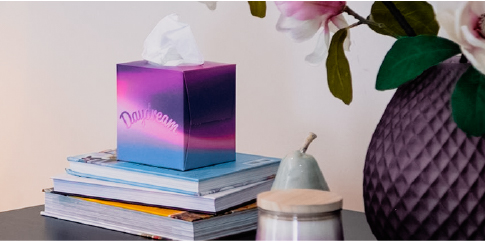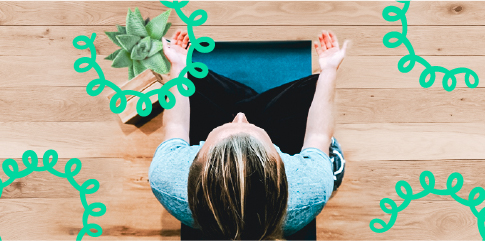As important as your physical health: your mental health
We’re all so aware of our physical health: eating the right foods and getting enough exercise. However, just as important is our mental health: our emotional, psychological and social well-being. It affects how we think, feel and act. It also helps determine how we handle stress, relate to others and make healthy choices. It’s important at every stage of our lives, from childhood to adulthood.
When you have good mental health you’re able to think, feel and react in a positive way and enjoy life. However, when your mental health suffers things can quickly get on top of you. Then the way you think, feel and react may become impossible to cope with. That is just as bad as physical illness, and in some cases much worse.
Mental health issues are no small problem, the World Health Organization (WHO) estimates that globally one out of every four people will be impacted by poor mental health at some point in their lives. In fact, it’s one of the main causes of illness worldwide. To give you an idea of just how serious this is: one in six people experienced a mental health problem in this week alone. And it’s getting worse.
The coronavirus pandemic was and is a traumatic experience for all of us. Many young and single people struggled with loneliness. Most people with existing mental health problems found it even more difficult to cope with their condition, increasing its severity and the challenges they’re facing now, and their concerns about the future. Not to mention, the difficulty of accessing professional help, because of the pandemic restrictions on contact and movement.
The most common forms of mental health problems include anxiety, depression and post- traumatic stress disorder (caused by experiencing a traumatic event). There are also ten types of personality disorder which can affect an individual’s mental health. Everything from paranoid, obsessive and antisocial behaviour to narcissistic and borderline tendencies.
Mental well-being is a big issue, but what can you do if it affects you, or someone you care about? Firstly, acknowledging that there is a problem. It’s not something most of us want to talk about or admit to. For example, in the UK, only one in eight adults with a mental health problem is getting any kind of treatment. Which is very worrying indeed.
Mental health problems. How can you tell? What should you do?
There are some clear signs. Feeling excessively sad or low, not being able to think properly, problems with concentrating and learning. Also, extreme mood changes. One moment, feeling euphoric, the next, extremely irritable or angry. The best thing to do, is seek professional help immediately, by making an appointment with your doctor or calling a health line.
Improve your mental health
- Food for thought
Eating the right food can help relieve stress and anxiety. Not just today, but tomorrow too. Like protein, containing amino acids, which make up the chemicals your brain needs to help regulate your thoughts and feelings. Basically, eating good quality food containing lots of vitamins, minerals and antioxidants also nourishes your brain, as well as your body.
- Don’t fight loneliness alone
Loneliness is a very personal experience. Some people feel lonely, because they don’t have enough human contact. While others can be the life and soul of every party, and yet, still feel alone. Coping with loneliness is also personal, but here are a few ideas. Firstly, you don’t have to rush into anything, take small steps. Like joining an online course with other people, where you don’t necessarily have to interact. Only if you want to. Or consider joining a live course, but just watching at first, that can also help. There are all kinds of support services, not just health professionals. Peer support can be very helpful: talking to people who have been through the same experiences and how they learned to cope. It’s a really good idea to look online and see what suits your needs.
- Mindfulness
This is about concentrating on the present moment. Paying special attention to your mind, body and surroundings. It can really help with managing stress, depression and anxiety problems. Instead of being overwhelmed by our thoughts and feelings, we learn how to manage them in a better way.
- Sleep more
Not sleeping properly can have a negative impact on your mental health. Poor sleep can, for example, lead to anxiety and depression. So, how do you get more zeds? There are medications, therapies and counselling to help you sleep. Again, if you feel that you’re not getting enough sleep talk to your doctor sooner rather than later. If it’s not too serious, consider consuming less coffee and alcohol. Deep breathing exercises can also help, as well as physical exercise.
Your mental health is so important, when in doubt always talk to your doctor. Never feel embarrassed, it affects so many of us and the worst thing we do is not to act.












